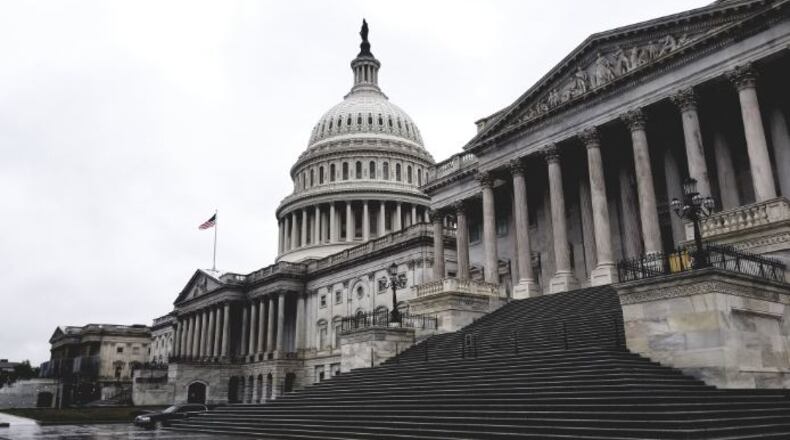Whether the 2018 mid-term elections bring a Blue Wave, or just a small ripple in the political pond that is the U.S. Congress, there will be dozens of new faces when the 116th Congress convenes in 2019, as change continues at a strong pace on Capitol Hill, even without term limits.
"Regardless of how the elections turn out: On Jan 3, 2019 over half (218+) of the US House will have served 6 years or less," said Rep. Tom Massie (R-KY), pointing out a fact which many people refuse to believe, that the Congress routinely brings in new blood, in both parties.
As Election Day arrives, the House is guaranteed to have 59 new members in January of next year - 58 have already either retired, decided to run for a new office, lost a primary - and one died (Rep. Louise Slaughter D-NY).
But 59 is the minimum change in the House, because two lawmakers face off against each other in Pennsylvania, meaning even before Election Day, this year features more of a shakeup in the House than the 2016 election, where 57 new lawmakers arrived.
Here's the change in Congress from each election stretching back to the 2006 mid-term, when Democrats took over both the House and Senate.
Credit: Jamie Dupree
Credit: Jamie Dupree
As you can see, double-digit change has happened in the House in every election since 2006, with a 22 percent shakeup in 2010, when the Tea Party revolt swept in 94 new members of the House - with 78 people arriving two years later in 2012.
But the numbers are even greater than what you see in the above graphic, because those changes don't take into account all of the churn which happens outside of a regular election, when lawmakers leave their seats for a variety of reasons - death, personal/family, ethical matters, or they just decide to resign early.
For example, in the current Congress, one House member died, and 15 others resigned on their own; in the Senate, one Senator died, and two others resigned their seats.
That type of turnover is often overlooked, but it adds up.
If you take Massie's six year observation and look at the new Senate in January, at a minimum there will be at least 41 Senators who have only been in the Senate for 6 years or less - and that's if no incumbents are defeated on Tuesday.
If you go out to eight years of service, then more than half of the Senators will have been around for 8 years or less, with close to two-thirds serving 10 years or less.
I know people will immediately write me to say, "Yeah, but so-and-so has been around forever!" - and yes, there are examples of lawmakers in both the House and Senate who have been there for a long time.
But turnover continues at a decent pace in Congress - if you actually dig into the numbers.
About the Author
The Latest
Featured




